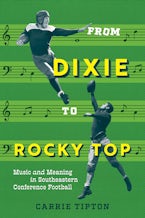- Home
- Lost Delta Found

Lost Delta Found
Rediscovering the Fisk University-Library of Congress Coahoma County Study, 1941-1942
by John W. Work III, Lewis Wade Jones and Samuel C. Adams Jr.
Edited by Robert Gordon and Bruce Nemerov
This remarkable book recovers three invaluable perspectives, long thought to have been lost, on the culture and music of the Mississippi Delta.
In 1941 and ’42 African American schol-ars from Fisk University—among them the noted composer and musicologist John W. Work III, sociologist Lewis Wade Jones, and graduate student Samuel C. Adams Jr.—joined folklorist Alan Lomax of the Library of Congress on research trips to Coahoma County, Mississippi. Their mission was “to document adequately the cultural and social backgrounds for music in the community.” Among the fruits of the project were the earliest recordings by the legendary blues singer and guitarist Muddy Waters.
The hallmark of the study was to have been a joint publication of its findings by Fisk and the Library of Congress. While this publication was never completed, Lost Delta Found is composed of the writings, interviews, notes, and musical transcriptions produced by Work, Jones, and Adams in the Coahoma County study. Their work captures, with compelling immediacy, a place, a people, a way of life, and a set of rich musical traditions as they existed in the 1940s.
Illustrated with photos and more than 160 musical transcriptions.
John W. Work III (1901–1966) was a gifted composer and educator. One of the first African American academics to argue the value of African American folk music, he preserved this heritage both in his book, American Negro Songs and Spirituals, and through his work with the Fisk Jubilee Singers, which he directed from 1947 until 1956. He retired from Fisk University in 1966.
Lewis Wade Jones (1910–1979) was an instructor in the Department of Social Sciences at Fisk University from 1932 to 1942, where he worked closely with Charles S. Johnson. In 1949 the two co-wrote A Statistical Analysis of Southern Counties: Shifts in the Negro Population of Alabama. After leaving Fisk, Jones moved to the Tuskegee Institute School of Education, where he was a professor of sociology.
After receiving his master’s degree from Fisk University, Samuel C. Adams jr. (1920–2001) attended the University of Chicago, where he received his PhD in 1953. He had a long and distinguished career in public service, highlighted by his appointment to the post of Ambassador to the Republic of Niger in 1968–1969.
Robert Gordon is a writer and Emmy Award–winning filmmaker. His most recent book is Memphis Rent Party: The Blues, Rock & Soul in Music’s Hometown.
Bruce Nemerov has been, variously, a musician, radio and record producer, and writer. He was awarded a Grammy for the notes to John W. Work III: Recording Black Culture, an album of Work’s field recordings.
"Lost Delta Found: Rediscovering the Fisk University–Library of Congress Coahoma County Study, 1941–1942 presents a unique and valuable perspective on the pioneering Coahoma County study that also was recounted in Alan Lomax's Land Where the Blues Began, a prior Classics of Blues Literature honoree. Written by African American scholars from Fisk University, Lost Delta Found documents their crucial but often overlooked work on the project."
—The Blues Foundation's Blues Hall of Fame induction announcement, 2019
"Restores credit for the definitive Delta-blues research to the men who conducted it."
—Paste Magazine
"Splendid and significant . . . Work was instrumental in uncovering and giving the work of bluesmen Muddy Waters, Son House, Son Sims, and Willie Brown to the world; every library that owns [Alan Lomax's book The Land Where the Blues Began] should own this one, too. An essential purchase for music collections."
—Library Journal
"This may well be the greatest unpublished goldmine of early research into the music of black Mississippians, and its appearance is a boon not only to music scholars but to anyone interested in Southern life in a period of intense change and musical expression."
—Sing Out!
"These original documents . . . paint a compellingly accurate portrait of the Mississippi Delta in the 1940s. . . . Work, Jones, and Adams are finally getting their due at a time when Mississippi seems consumed with righting its past wrongs."
—Mojo
"Gordon and Nemerov have rescued from oblivion an important study of black life in rural Mississippi. . . . Work's 160 song transcriptions of 1941–1942 field recordings form the 100-page centerpiece of this book, and equally illuminating are insightful essays by the Fisk trio on plantation folklore and traditions, already fading at that time as urban influences permeated the Mississippi Delta."
—Publishers Weekly











